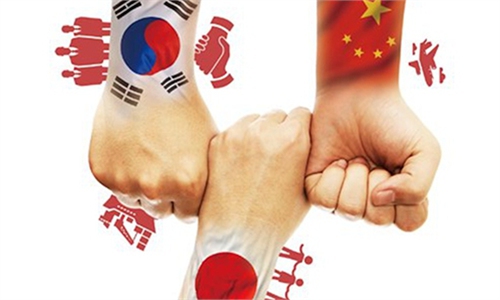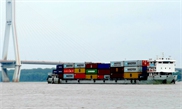
Photo: IC
The coronavirus pandemic, which just broke a grim mark of 3 million confirmed cases in the US on Tuesday, is set to haunt the US economy for longer than expected as states have rolled back their reopening plans amid climbing cases.
This is undoubtedly a very bad development for the global economy, particularly in Southeast Asia where economies are highly complementary with the US economy. Since the US is an important export destination for electronic machinery, garments and agricultural products produced in Southeast Asia, it seems certain that the regional trade will inevitably take a major hit given the US pandemic fallout thus far.
Under such circumstances, the entire Asian industrial chain will face the inevitable need for adjustment and exploring new consumer markets to cushion the impact of declining trade with the US. Thus, the importance and necessity of the Regional Comprehensive Economic Partnership (RCEP) to Asian economies, especially those in Southeast Asia, has become increasingly evident.
Against such a backdrop, some RCEP participants such as Thailand and Indonesia have expressed their willingness to accelerate RCEP progress and sign the deal within the year, in the hope that the partnership will help their economies recover from the trade contraction and rising protectionism triggered by the pandemic.
Nevertheless, we have also noticed that some Indian media outlets have cited anonymous top official sources to have said India will not join any trade agreement in which China is a member due to its tensions with the latter following the recent border standoff.
If India doesn't change its mind and does not return to the RCEP talks, it will not affect the conclusion of the multilateral free trade agreement, as the option of an accelerated RCEP that doesn't include India can be acceptable to the remaining 15 RCEP members.
The coronavirus pandemic has posed unprecedented challenges to the global supply chain and world trade order, which cannot be solved by one country alone. That is why the Asian industrial chain needs a new mutually beneficial trade agreement more than ever, and there is no time to waste.
As the largest economy among all RCEP participating member states, China was the first to bring the virus under control and return its economic activities to normalcy. China has also made it clear that it will continue its opening-up agenda, which is set to further benefit Asian economies under the RCEP framework in the future.
It should be noted that even with the RCEP deal, the Asian industrial chain will still encounter challenges and difficulties during the upcoming transition period. Thus, preparations are still essential for some temporary economic losses and turbulence.



